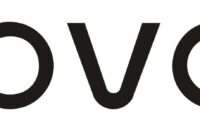VANCOUVER, May 25, 2018 /PRNewswire/ – Neovasc Inc. (“Neovasc” or the “Company”) (NASDAQ, TSX: NVCN), a leader in the development of minimally invasive transcatheter mitral valve replacement technologies, today provided highlights from EuroPCR, the annual meeting of the European Association of Percutaneous Cardiovascular Interventions (EAPCI) of the European Society of Cardiology (ESC), which took place at the Palais des Congrès in Paris, France May 22-25. Neovasc management held numerous discussions throughout EuroPCR with European physicians regarding their interest in either participating in the ongoing Tiara™ (the “Tiara”) clinical trials or in using the Neovasc Reducer™ (the “Reducer”) product for their patients suffering from refractory angina.
Tiara
“We had a successful and engaging meeting with investigators in our Tiara-II trial regarding clinical results to-date, optimal screening process, best practices for implantation, and a direct comparison of published Tiara clinical results with results from mitral clipping procedures,” commented Fred Colen, Neovasc’s Chief Executive Officer.
“There was also a presentation of results from our first animal feasibility study for the trans-septal version of Tiara. We collected additional input and feedback from investigators, and these results, along with the updates and discussions in general at the TIARA-II Investigator meeting, appear to have excited our implanting physicians,” continued Mr. Colen.
Dr. Anson Cheung also presented the latest clinical results of the Tiara valve during the Mitral Valve Replacement session, noting that 56 patients had been implanted to date and the 30-day survival rate was 94%, with trace or no remaining mitral regurgitation in most cases.
Reducer
Dr. Stefan Verheye and Dr. Shmuel Banai hosted a symposium on the Reducer, which included presentations from physicians on their clinical experience with Reducer, discussions about potential additional applications for Reducer, and a cost/benefit analysis of Reducer utilizations for healthcare systems.
“We were delighted by the interest from physicians in the Reducer this year, and attendance at the symposium exceeded capacity. It was an extraordinary experience, and it reconfirmed our belief in Reducer as a safe and effective product that we expect to generate improved results now that it is being used more broadly across Europe. We believe that for too long this product’s value has been heavily discounted by its stakeholders.” concluded Mr. Colen.
The scheduled live case of a Reducer implant did not take place as planned because the patient was feeling better and withdrew from the procedure.
About Neovasc Inc.
Neovasc is a specialty medical device company that develops, manufactures and markets products for the rapidly growing cardiovascular marketplace. Its products include the Reducer, for the treatment of refractory angina, which is not currently available in the United States and has been available in Europe since 2015, and the Tiara, for the transcatheter treatment of mitral valve disease, which is currently under clinical investigation in the United States, Canada and Europe. For more information, visit: www.neovasc.com.
This news release contains forward-looking statements within the meaning of the U.S. Private Securities Litigation Reform Act of 1995 and applicable Canadian securities laws regarding the Company’s plans and expectations concerning participation in the Tiara clinical trials and the results from such trials, the feasibility of the trans-septal version of the Tiara, future use of the Reducer for treatment of refractory angina, the ability of the Reducer to generate improved results and the Reducer’s value relative to its stakeholders’ perceptions. Words and phrases such as “continue”, “strategy”, “believe”, “may”, “could”, “should”, “expect” and “will”, and similar words or expressions, are intended to identify these forward-looking statements. Forward-looking statements are based on estimates and assumptions made by the Company in light of its experience and its perception of historical trends, current conditions and expected future developments, as well as other factors that the Company believes are appropriate in the circumstances. Many factors and assumptions could cause the Company’s actual results, performance or achievements to differ materially from those expressed or implied by the forward-looking statements, including, without limitation, the substantial doubt about the Company’s ability to continue as a going concern; risks relating to the warrants (the “Warrants”) and senior secured convertible notes (the “Notes”) issued pursuant to the November 2017 underwritten public offering and concurrent private placement (together, the “2017 Financings”), resulting in significant dilution to the Company’s shareholders; risks relating to the Company’s need for significant additional future capital and the Company’s ability to raise additional funding; risks relating to cashless exercise and adjustment provisions in the Warrants and Notes issued pursuant to the 2017 Financings, which could make it more difficult and expensive for the Company to raise additional capital in the future and result in further dilution to investors; risks relating to the sale of a significant number of common shares of the Company; risks relating to the exercise of Warrants or conversion of Notes issued pursuant to the 2017 Financings, which may encourage short sales by third parties; risks relating to the possibility that the Company’s common shares may be delisted from the Nasdaq Capital Market or the Toronto Stock Exchange, which could affect their market price and liquidity; risks relating to the Company’s Common Share price being volatile; risks relating to the influence of significant shareholders of the Company over the Company’s business operations and share price; risks relating to the Company’s significant indebtedness, and its effect on the Company’s financial condition; risks relating to claims by third parties alleging infringement of their intellectual property rights; risks relating to lawsuits that the Company is subject to, which could divert the Company’s resources and result in the payment of significant damages and other remedies; the Company’s ability to establish, maintain and defend intellectual property rights in the Company’s products; risks relating to results from clinical trials of the Company’s products, which may be unfavorable or perceived as unfavorable; the Company’s history of losses and significant accumulated deficit; risks associated with product liability claims, insurance and recalls; risks relating to use of the Company’s products in unapproved circumstances, which could expose the Company to liabilities; risks relating to competition in the medical device industry, including the risk that one or more of the Company’s competitors may develop more effective or more affordable products; risks relating to the Company’s ability to achieve or maintain expected levels of market acceptance for the Company’s products, as well as the Company’s ability to successfully build its in-house sales capabilities or secure third-party marketing or distribution partners; the Company’s ability to convince public payors and hospitals to include the Company’s products on their approved products lists; risks relating to new legislation, new regulatory requirements and the efforts of governmental and third-party payors to contain or reduce the costs of healthcare; risks relating to increased regulation, enforcement and inspections of participants in the medical device industry, including frequent government investigations into marketing and other business practices; risks associated with the extensive regulation of the Company’s products and trials by governmental authorities, as well as the cost and time delays associated therewith; risks associated with post-market regulation of the Company’s products; health and safety risks associated with the Company’s products and industry; risks associated with the Company’s manufacturing operations, including the regulation of the Company’s manufacturing processes by governmental authorities and the availability of two critical components of the Reducer; risk of animal disease associated with the use of the Company’s products; risks relating to the manufacturing capacity of third-party manufacturers for the Company’s products, including risks of supply interruptions impacting the Company’s ability to manufacture its own products; risks relating to the Company’s dependence on limited products for substantially all of the Company’s current revenues; risks relating to the Company’s exposure to adverse movements in foreign currency exchange rates; risks relating to the possibility that the Company could lose its foreign private issuer status under U.S. federal securities laws; risks relating to breaches of anti-bribery laws by the Company’s employees or agents; risks associated with future changes in financial accounting standards and new accounting pronouncements; risks relating to the Company’s dependence upon key personnel to achieve its business objectives; the Company’s ability to maintain strong relationships with physicians; risks relating to the sufficiency of the Company’s management systems and resources in periods of significant growth; risks associated with consolidation in the health care industry, including the downward pressure on product pricing and the growing need to be selected by larger customers in order to make sales to their members or participants; risks relating to the Company’s ability to successfully identify and complete corporate transactions on favorable terms or achieve anticipated synergies relating to any acquisitions or alliances; risks relating to the Company’s ability to successfully enter into fundamental transactions as defined in the Series C warrants issued pursuant to the 2017 Financings; anti-takeover provisions in the Company’s constating documents which could discourage a third party from making a takeover bid beneficial to the Company’s shareholders; and risks relating to conflicts of interests among the Company’s officers and directors as a result of their involvement with other issuers. These risk factors and others relating to the Company are discussed in greater detail in the “Risk Factors” section of the Company’s Annual Report on Form 20-F and in Management’s Discussion and Analysis for the quarter ended March 31, 2018 (copies of which may be obtained at www.sedar.com or www.sec.gov). The Company has no intention and undertakes no obligation to update or revise any forward-looking statements beyond required periodic filings with securities regulators, whether as a result of new information, future events or otherwise, except as required by law.
SOURCE Neovasc Inc.






